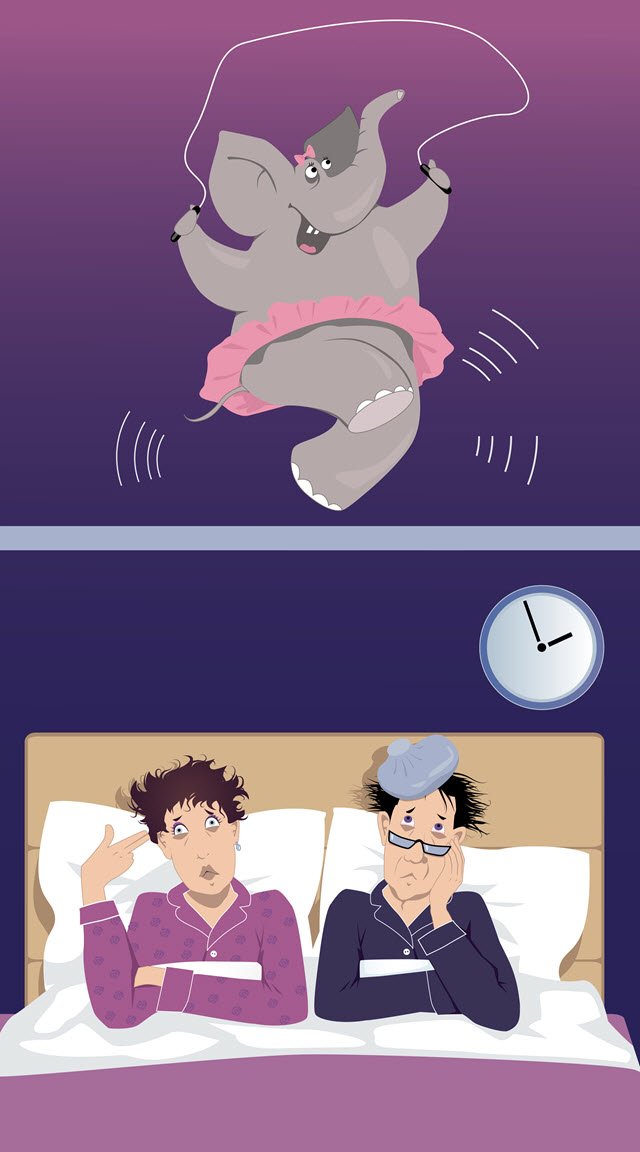Make Your Bedroom Sleep-Friendly
Ever considered that part of your sleep problem could be right in your bedroom? Your sleep environment can be a key interruption in your sleep cycle and you may not even realize it. Here is a list of some possible problems and their solutions or improvement.
Changing Your Environment for Better Sleep
Your sleep environment could be an impediment to good sleep habits for various reasons. First, do you like where you sleep? If you go to bed in a bedroom do you find it restful, peaceful and a place where you feel quiet and relaxed? If not, then why not?
1. Remover clutter and give stuff a proper place. Too many people’s bedrooms look like an out of control closet.
- Spend a bit of time picking up dirty clothes, putting away clean piles of laundry.
- Also if you work at home don’t work out of your bedroom; a general rule is to separate bedroom or sleep area from work space.
- If you have a television and computer in your room try and keep them in a cabinet that can be closed so you can effectively turn them off and store them out of sight.
2. Assess your mattress. Mattresses are pretty important to good sleep, but they can also be expensive and may not be in your budget. However, if you are still sleeping on an old or hand-me-down mattress and having pain, or suffering insomnia, make this a priority spend. Shop carefully; you don’t have to put out major dime for a good quality mattress.
- Invest in a nice set of bed linens. Nice linens, 100% cotton and high thread count are a luxury, but you can find excellent sales. These provide some sensory appeal when you want to create a sanctuary or retreat.
3. Set appropriate room sleep temperature. Make sure you are sleeping in a room in which the air temperature is, as Goldilocks would say, “Just right.” This takes some trial and error, but most folks prefer a cooler room. If you share a bed with someone getting the room temperature right may be a compromise. You can try moving your bed around to avoid heat vents or open windows.

4. Sounds are important to most people when sleeping and unusual noises can easily wake you. Do you seek a silent room? Do you need to hear some noise? Do you sleep near a busy highway or airport? These types of things can make a bigger difference than you think.
- Need some noise? Invest in a sound machine, white noise machine. Many models offer an assortment of background noise from ocean to train and more. Or you could invest in a small fan for some affordable white noise.
- Need silence? Make sure televisions are turned off, close your door and windows, try earplugs or if you’re near a busy street try moving your bedroom to the room furthest from the street.
5. Pay attention to lighting. How dark is your room when you sleep? Do streetlights or even LED lights from a bedside alarm clock disrupt your sleep? If outside light is a problem invest in heavyweight window shades or heavy curtains with light-canceling backing. Remove LED alarm clocks and replace with something that does not emit light during the night.
6. Think back to the nicest bedroom you ever slept in…what did it have in it that soothed you, made you happy, gave you joy, allowed you to relax? Apply those same strategies to your own sleep space. If it was plush bathrobe, then why not invest in one and use it every night to treat yourself at bedtime?
Alternative Sleep Environments
What if you don’t sleep in a bedroom? What if you sleep on a fold out sofa bed, or an air mattress in a friend’s spare room? Do what you can to make whatever space it is in which you regularly sleep a more appealing spot, a little bit yours.
Part of the insomnia solution includes a battery of sleep hygiene behaviors and ensuring your sleep environment is pleasing and relaxing is just one, but it’s a big one. You can spend a little or spend a lot to make simple to extravagant changes.
